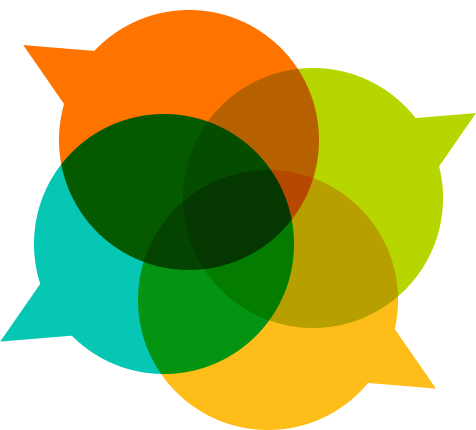Here are a few experiences from facilitators that speak to this question:
I try to be very knowledgeable about the topic before my learning circle starts. The idea of becoming a learning circle facilitator without subject matter expertise seems daunting and confusing for learners.
I feel like a lousy facilitator when I teach, but it feels right sometimes.
I can’t acknowledge what I know already in a learning circle, so I re-direct questions to the rest of the group whenever I can. If I admit that I could answer their questions, then it would immediately become a class, which seems wrong.
If any of this sounds familiar, I suggest taking a step back and ask yourself what it is about the act of facilitation that is important to you for a learning circle? Teaching itself is not wrong, but there is a different intention placed when taking the role of a facilitator. P2PU believes that the practice of facilitation is needed to model a productive learning environment and to support people to recognize and validate their knowledge and expertise. We think that facilitation creates the intention of seeing the group’s experience as a benefit to learning, which can sometimes be challenging to translate into a traditional teaching role.
So, how can we emphasize that intention as a learning circle facilitator? We’ve organized a few tips and quotes mentioned during our facilitation community calls and facilitator resources that try to answer this question.
Tips and strategies
- State from the very beginning that you are not an expert and that you are not there to teach the course.
- Remind everyone that you are all learning together and that you are also learning something new.
- Try not to stay in the “teacher spot” in the venue like the front of the room. Move around or sit with the group.
- Remind yourself that no one knows everything because everyone is always learning and improving in everything we do.
- Remind yourself that there are different ways of knowing, and your knowledge is not the only way to know, understand, or apply.
- Pick a learning circle topic that you don’t know anything about is an excellent way to avoid being perceived as an expert. Similarly, be genuinely interested in learning something new yourself.
- It’s important not to be afraid of silence. It’s tempting to fill the gap, but if you wait, even to the point of being a little uncomfortable, someone else will speak up.
- Model for the group by engaging learners in problem-solving and actively reaching out to help when possible.
- Be honest about what you do know and encourage self-discovery and peer exchange. If people are stuck, you can undoubtedly help, then, by all means, guide them, and model what that looks like for everyone else.
Sayings and quotes
- “Disclose but don’t impose”.
- “Don’t plan activities for others unless you plan to take part as a fully engaged participant.”
- "As a facilitator, I’m driving the car, but as passengers, you are telling me where to go"*
- "Go to the people. Live with them. Learn from them. Love them. Start with what they know. Build with what they have. But with the best leaders, when the work is done, the task accomplished, the people will say 'We have done this ourselves.”- Lao Tzu



